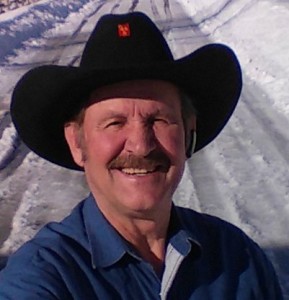I think we need to go ‘back from nature’. I know, I know. The saying is supposed to be ‘back to nature.’ But I propose that ‘natural’ isn’t always better than how man can alter the environment to improve it. Nature doesn’t necessarily know best.
Take the current drought in California. I was recently in conversation with a man who farms 35,000 acres in California. He has spent thousands over the past year drilling new wells because the aquifer has dropped. He said, “The real problem isn’t drought. It is that environmentalists won’t let us build any more dams. So in dry years we run out of water and in wet years we have floods. We are also short of electricity with brown-outs in Los Angeles. Hydroelectric power is the cheapest and safest electricity there is. The aquifer is dropping, in part because they cut off irrigation water to farmers because of a supposedly endangered minnow. We formerly irrigated thousands of acres. The water would seep down through the ground and replenish the aquifer. Now that water flows to the sea.”
Many people think if we let nature take its course, without interference from man, we will have an abundance of wildlife in balance with its habitat. Not so.
When the Mormon pioneers arrived in Utah, they almost starved to death that first winter of 1847-48. Journals of those early pioneers indicate the deer population was so low it was not a source of food. Parley Pratt records in his journal he went hunting in the mountains east of Salt Lake trying to find a deer to feed his starving family. He hunted for three days without seeing a single deer. Today there are thousands of deer in that same area. Why so few deer in 1848, prior to the arrival of the white man?
Nature’s way is for a population of deer to increase under good conditions. Predators increase along with them. Finally there are so many deer they overeat their range, causing starvation. Disease takes many more from the weakened herd. The forage is badly damaged, taking decades to recover. The resulting crash in the deer population also causes the predators to die off. Then the cycle slowly repeats itself, taking perhaps fifty years to build back. The pioneers arrived at a low point in the cycle. Man, with modern game management, tries to keep game populations stable by improving habitat, issuing hunting permits, and by controlling predators. This keeps wildlife in balance with their environment and provides a steady source of food for humans. This is a great improvement over the ‘natural’ way of things.
The Gila Valley (pronounced Hee-la) where I was born, in southeast Arizona, is another prime example of extreme environmentalists trying to keep things ‘natural’, with negative results. The Gila River runs at a mere trickle most of the year and farmers cannot rely on it for water. Then it periodically floods, taking out bridges and washing away thousands of acres of farmland and crops. For more than fifty years the locals have tried to have a dam built to catch the floodwaters, irrigate farmland, and provide hydro-electric power. These plans are continually blocked by irrational protection of the Gila Humpback Chub Minnow. The ‘back to nature’ gang is preventing us from altering our environment in a positive way.
I once did an unorthodox experiment testing the “back to nature” theory. While hunting for deer I happened upon a bull elk which hadn’t seen me. I figured the reason hunters had a hard time seeing a trophy was our attire was scaring them. When blaze-clad hunters were seen, the woods were filled with booming noises and one of their friends failed to report for cavorting duty that night. I theorized deer and elk had never seen a naked hunter and would be caught with their pants down, so to speak. I postulated they would pause and gape, just for the novelty of it. So I stepped behind a tree, quietly disrobed, and then walked straight toward the bull elk. He paid no more attention to me than if I were a buff(alo) until I got within 30 yards. Then he suddenly jerked his head up, started to run, then stopped and stared (with an expression of envy, I might add) for at least five seconds, plenty of time to kill him had I a mind to. He then slowly trotted away, pausing now and again to crane his neck and stare.
This true story is as silly as extreme environmentalists blocking the building of dams or oil refineries. They are like a hunter running around naked and expecting great results. If we do away with modern improvements and return to ‘natural’, we may collapse society and return to the dark ages.
This fall join the extreme environmentalists. Go ‘back to nature’. Go hunting wearing only a smile. Enjoy being Homo Crazilis, hunkered over a fire in front of your cave.
Remember, “Life is always better when viewed from between the ears of a horse.”
Jonesy

